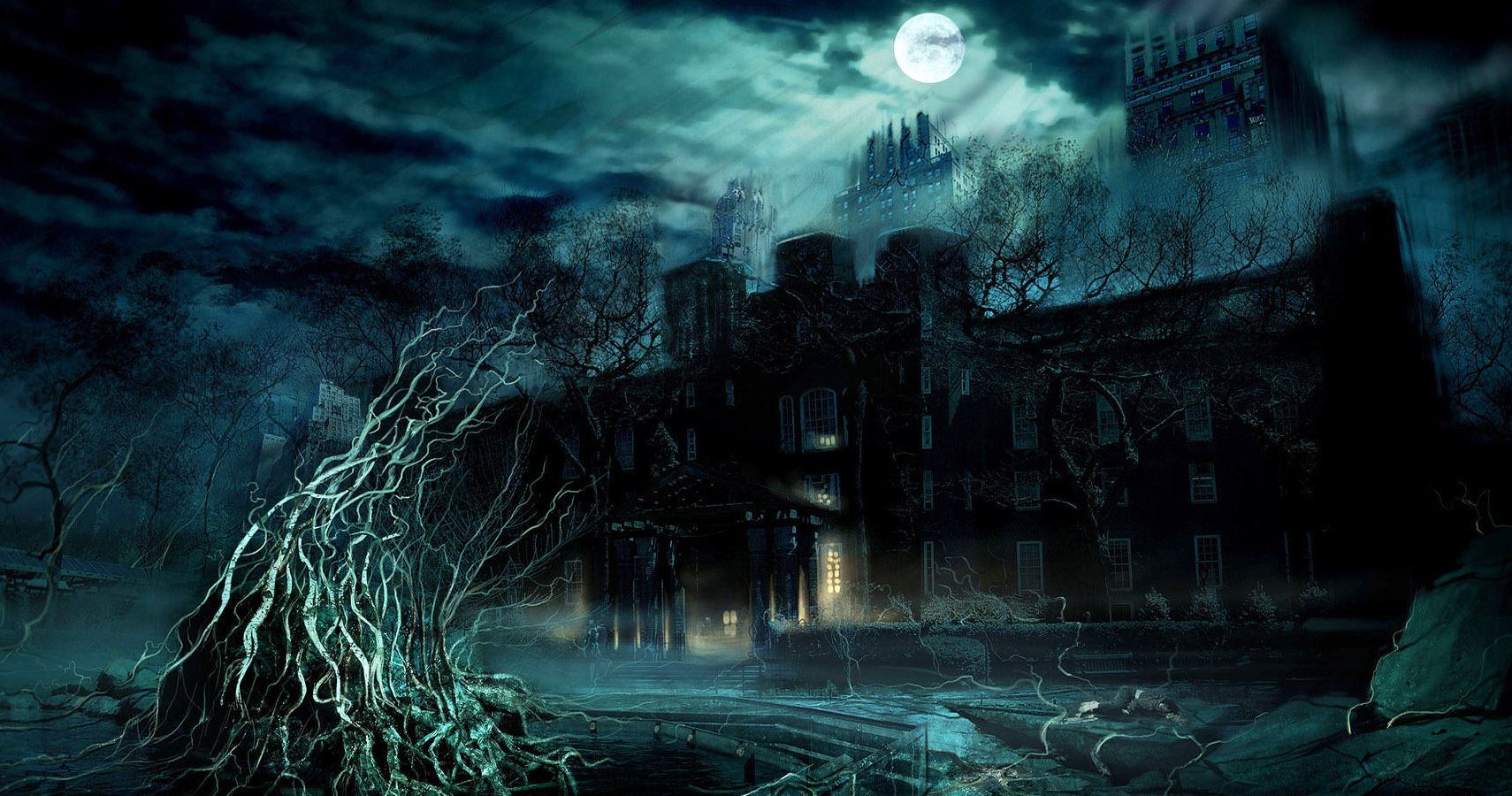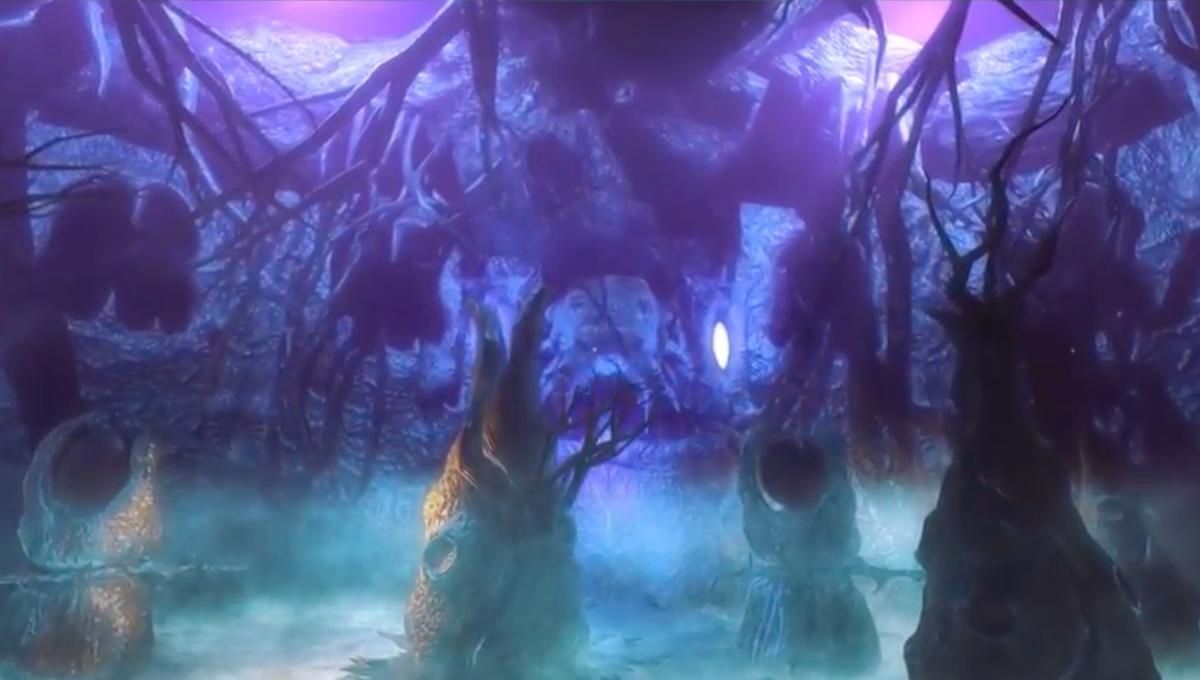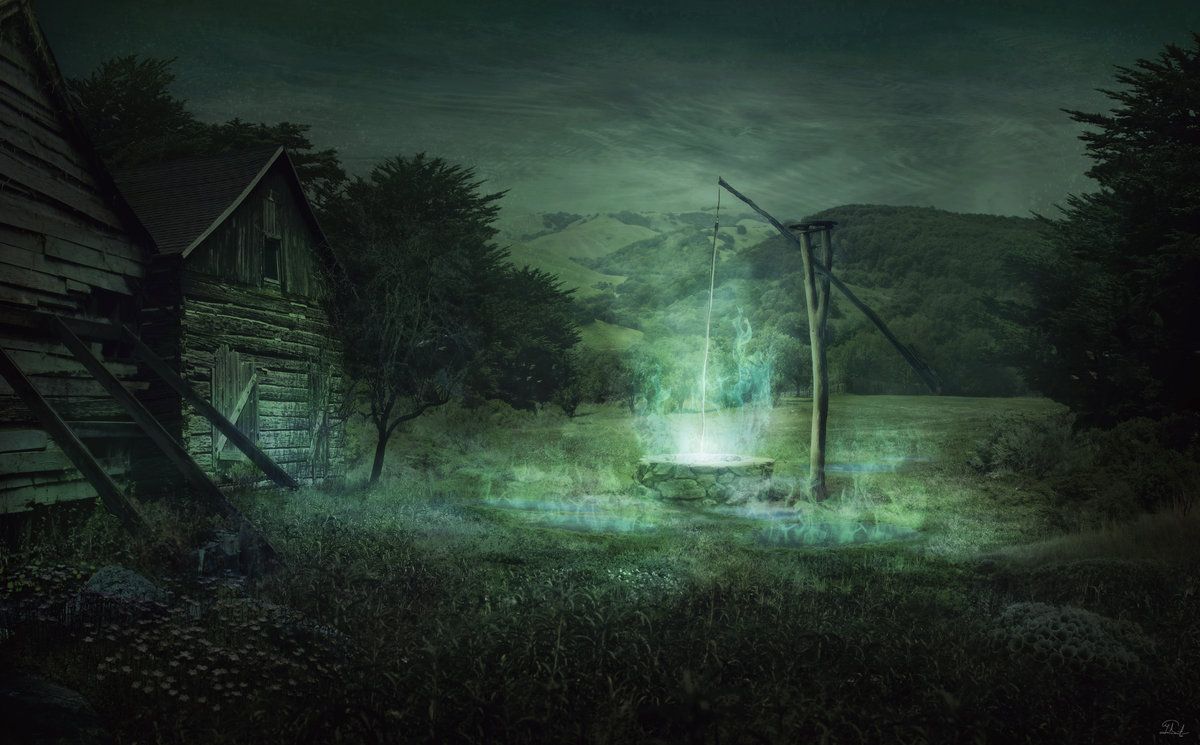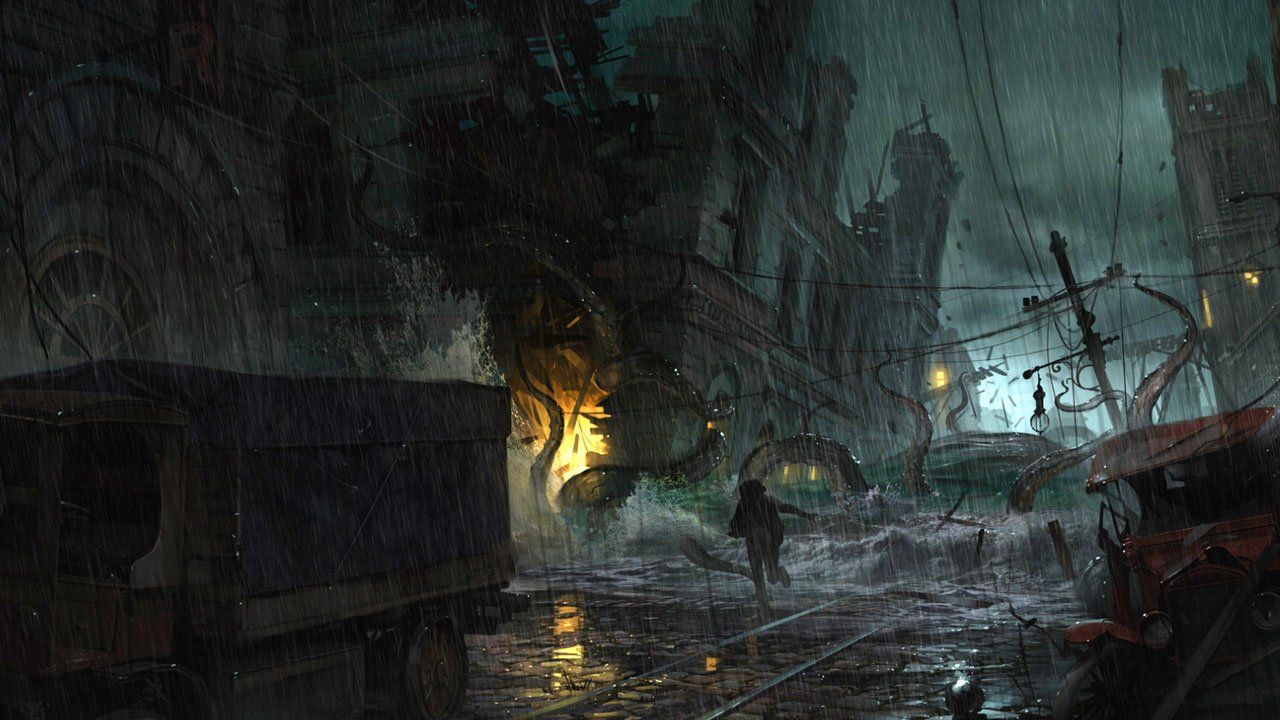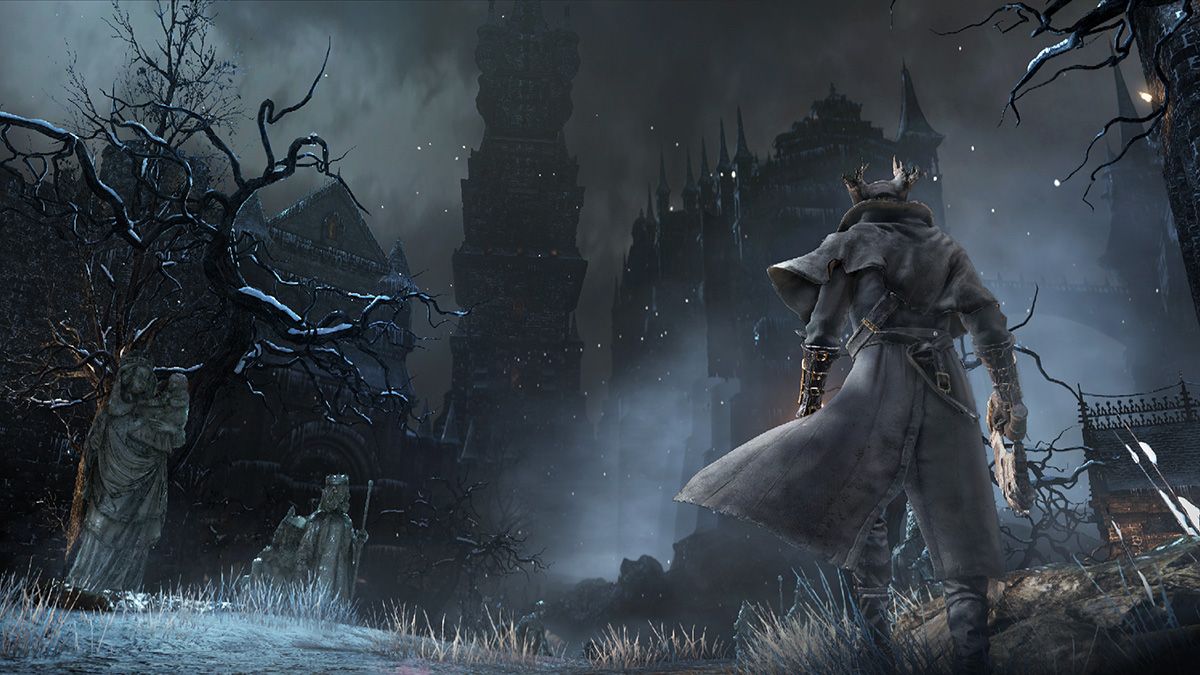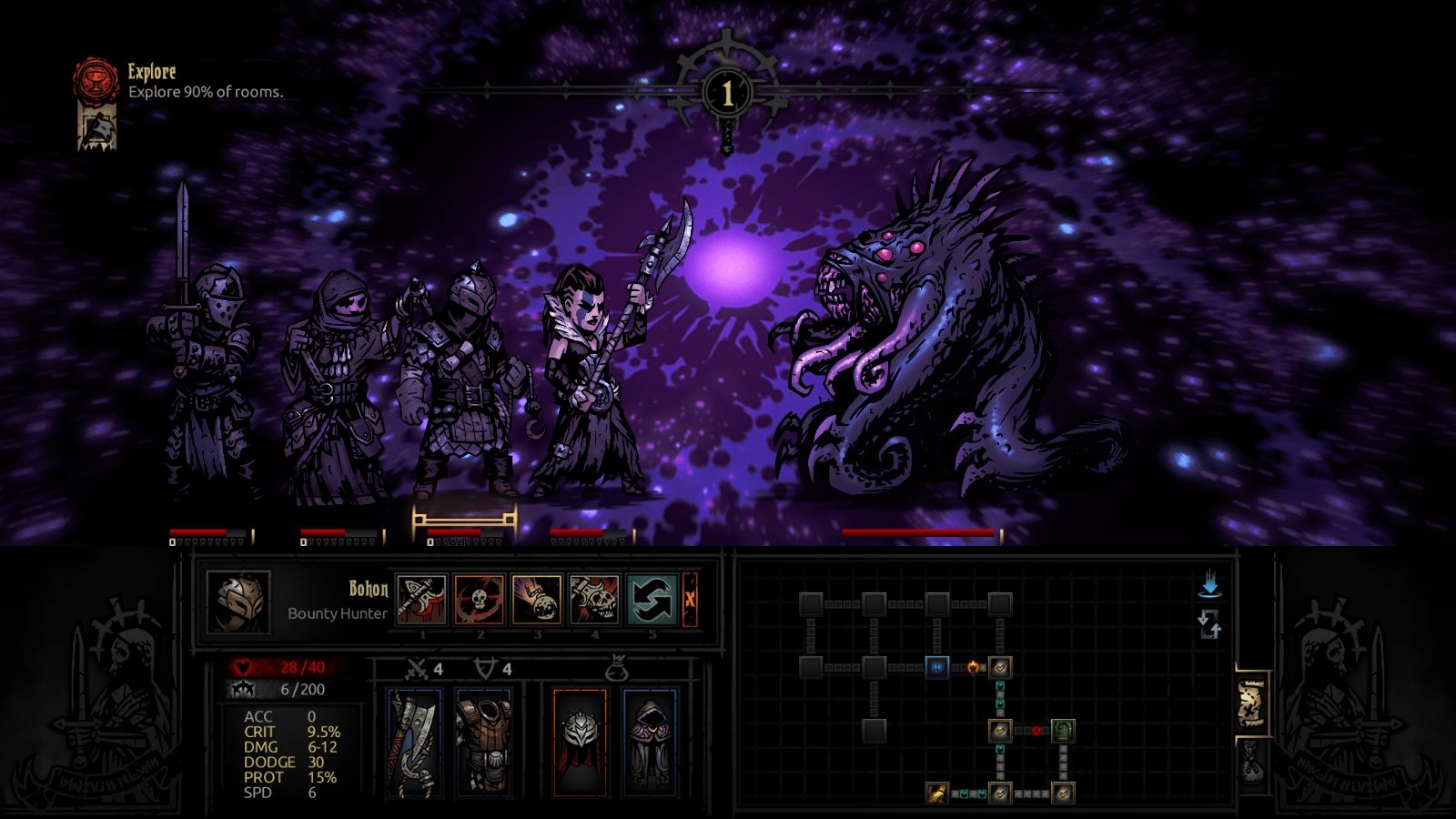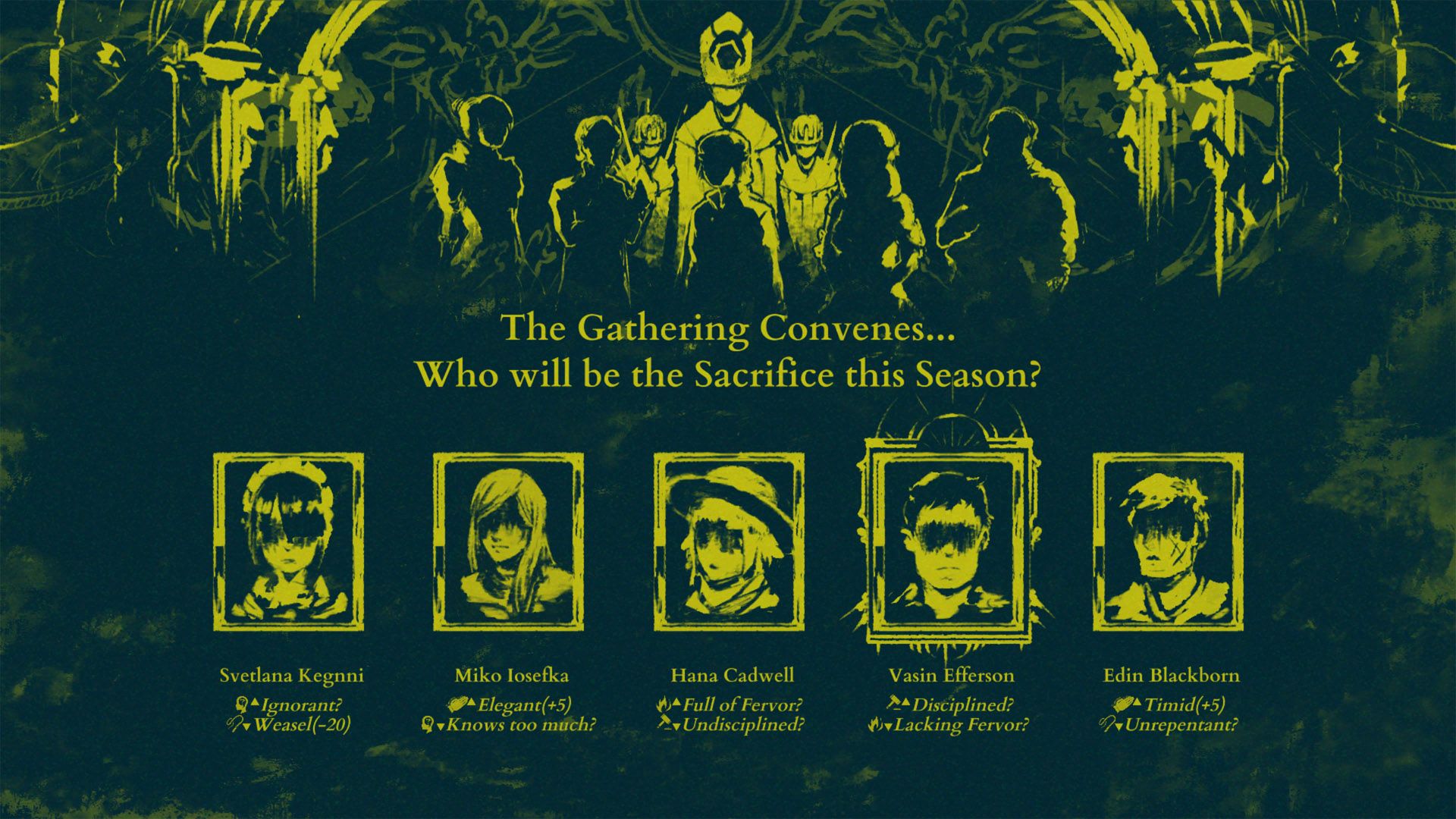Lovecraftian horror is a sub-genre of horror fiction that delves into cosmic horror, which is characterized by terror of the unknowable over gore or elements of shock. Translating that to video games has proven to be a challenge that most developers failed to achieve.
There an abundance of source material written by H.P Lovecraft to draw upon, as well as excellent adaptations by authors such as Neil Gaiman in his short story “A Study In Emerald”. Given the broad range of stories to tell, why is it so hard to replicate that feeling in the medium of video games?
What is Lovecraftian And Cosmic Horror?
The answer is quite simple when we consider the fundamental parts that make up Lovecraftian or cosmic horror, which are:
- The fear and awe that overwhelms us when confronted by phenomena that lies far beyond our comprehension. Imagine for a moment one experiences reality in a fourth and fifth dimension, along with beings that occupy that place. This would shatter the minds of most, as that reality literally lies in a space we are too simple to comprehend as beings. This extends beyond the narrow field of humanity and into that of cosmic significance.
- A unexpected and sudden contemplation of mankind's place in this vast, comfortless universe.
- A naturalistic fusion of horror and science fiction in which presumptions about the nature of reality are eroded, or simply cast aside in an unexpected revelation.
These qualities abound in the works of Lovecraft, as seen in The Call of Cthulhu, The Shadow over Innsmouth, At the Mountains of Madness, The Colour Out of Space, Pickman’s Model, The Rats in the Wall, Dagon, and many more.
As a reader, we are presented with characters who are hopelessly infantile in their understanding of what lies beyond our limited perception of reality. At best, these characters skim the surface and come out alive, barely, or they do look beyond the veil, only to be driven to madness.
It's worth noting that Lovecraft was a rampant, horrifying racist and xenophobe whose "fear of the unknown" came from his inability to empathize with the minorities who were gaining more significance and standing in the society of his time. His "cosmic horror" stemmed from his refusal to consider his privileged status in the wider context of human experience and political dynamics, and his persecution complex at the thought of being asked to do so. Most of his oeuvre is mired in his own white supremacy - and yet, the "Lovecraftian" genre has survived past its blighted beginnings to become a staple of horror today based on its independent merits.
So Many Lovecraftian Games, So Few Done Well
If one looks to Steam, they can find 183 current titles with “Lovecraftian” as a tag, and many fail to hit the mark.
This year, we have seen the release of a few titles that were highly anticipated, but overall did poorly from a critically point of view. The Sinking City is one example with with scores averaging around 60% on aggregate review sites. Although the game looked promising, and there are clear references to Lovecraft’s stories, this survival-horror game at its core could be boiled down to painstakingly covering the large map on foot and scanning an area for the interactable item.
There is also a progression system with skill trees to specialize your character, which feels out of place for a Lovecraftian protagonist who is supposed is always meant to be little more than a normal man or woman. The AI is clumsy, so the Deep Ones who should inspire terror instead walk into walls and look silly.
These deviances from the central themes present in Lovecraftian horror mean that games like The Sinking City have little chance of being successful within that niche storytelling genre and would be better off abandoning it entirely in favor of an original story.
Other games that that lean hard into the Lovecraftian source material often fail simply for that in and of itself. They end up marking themselves in a way that may turn away potential consumers who dislike Lovecraft stories or who are entirely unfamiliar with the genre to begin with. In 2005, Headfirst Productions released Call of Cthulhu: Dark Corners of the Earth, which in retrospect is a decent game with a good story. However, its high difficulty and launch window proved problematic, and the game was seen as a massive commercial failure.
Which Games Have Done Lovecraftian In A Satisfying Way?
Some of the games that best make use of Lovecraftian themes are those who hide or obscure them from their audience. This often works well because, like a Lovecraftian story, the characters themselves often do not understand the gravity of their situation or the scope of what they are dealing with.
With this in mind, Bloodborne is an example of an excellent game that owes much to the cult horror of Lovecraft. Upon overcoming the challenges of the game, ultimately the narrative ending pushes the narrative of human insignificance.
Darkest Dungeon also does a great job of incorporating Lovecraftian themes, but again it does so without making the theme a central point of the game, at least in the early stages. Madness can set in, but the truly significant Lovecraft elements come towards the end of the game, long after players have invested into the story.
Perhaps better than any is Amnesia: The Dark Descent. In that game, one truly feels like a helpless character in a larger scheme, and one struggles not to go mad or be killed by an unknown creature. Above all, players feel fear when playing this game. Fear of the unknown labyrinth that one needs to navigate, fear of the creatures that one cannot defend against, much less attempt to defeat, and all of these are crucial elements of the genre.
Beyond this, there are some interesting games that work within the Lovecraft universe, but in more creative ways that have nothing to do with recreating the feelings experiences by the characters in the stories. Cultist Simulator and The Shrouded Isle are fantastic games that are more interested in management than uncovering the secrets beyond our perception.
Conclusion
Creating a game that properly embraces Lovecraftian themes has clearly proven to be difficult, and few have hit the mark. It may be time to step away from the genre, or take a page from those who have done it well.
Rather than trying to force the themes to fit within survival horror games as we know it, now may be the time to consider more subtle or creative ways to incorporate the genre, though that has clearly been easier said than done.

